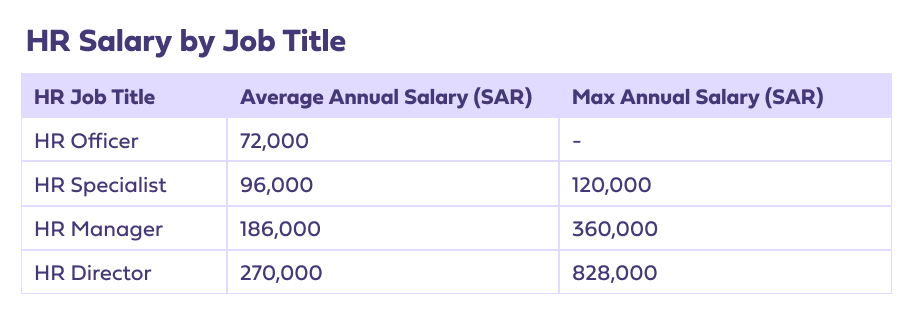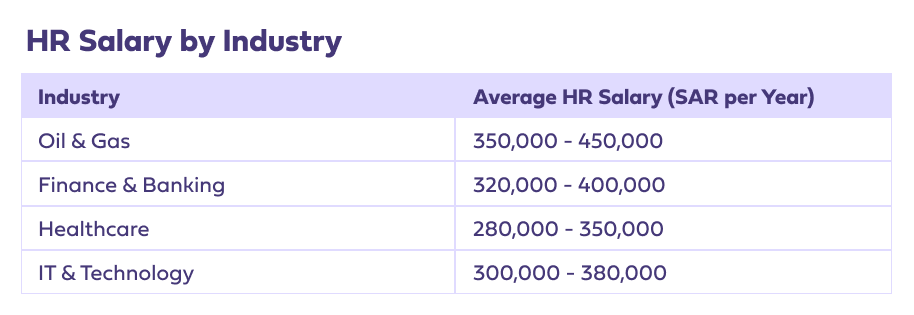The Rising Demand for HR Professionals in Saudi Arabia
The HR profession in KSA is evolving rapidly, driven by Vision 2030, workforce localisation policies, and digital transformation. As businesses expand, the demand for qualified HR professionals is rising, making HR one of the most sought-after career paths.
According to ZenHR, HR roles are increasingly important as companies comply with Saudization laws, implement digital HR solutions, and improve employee engagement strategies. Additionally, AI-driven HR technology and HR analytics (Explore: What is HR Analytics?) are reshaping how HR professionals work, creating opportunities for those with specialized skills and certifications.
Key Policies and Trends Shaping HR Salaries in Saudi Arabia
The Ministry of Human Resources and Social Development (HRSD) has implemented several programs and policies that influence HR salaries and employment conditions in Saudi Arabia:
- Wage Protection Program: This initiative ensures timely and accurate wage disbursements, creating a transparent and stable salary structure for HR professionals in the private sector.
- Labour Law and Implementing Regulations: Saudi labour laws define salary structures, employee rights, and fair compensation practices, ensuring standardized wages across industries.
- Saudization and Nitaqat Compliance: Government initiatives requiring companies to employ Saudi nationals impact HR hiring trends and salary competitiveness, particularly in compliance roles. (Download our exclusive guide on Saudization and Nitaqat Compliance to learn more.)
- Digital Transformation & HR Tech: The HR technology market in Saudi Arabia is projected to grow significantly, reaching $1.03 billion by 2031, according to BlueWave Consulting. As businesses invest in AI-powered recruitment, automated payroll, and employee experience platforms, HR professionals with strong tech skills will have higher salaries and career growth opportunities.

HR Salary in Saudi Arabia: A Comprehensive Breakdown
According to GulfTalent, the Saudi Arabia salary of HR professionals range from SAR 72,000 to SAR 828,000 per year, depending on experience, title and industry. Salaries in Saudi Arabia are also tax-free, increasing overall take-home pay.



(Combined data from PayScale, Glassdoor, GulfTalent and Nucamp)
Factors Influencing HR Salary in Saudi Arabia
1. Industry & Company Size
Salaries vary significantly depending on industry. Multinational corporations (MNCs) and high-revenue sectors like Oil & Gas, Banking, and Tech offer the most competitive salaries.
2. Experience Level
HR salaries increase significantly with experience, with senior HR professionals earning up to 4x more than entry-level employees.
3. Employer Compliance & Salary Stability
Saudi labour laws and compliance policies play a key role in maintaining fair salaries and employee rights:
- The Wage Protection Program ensures companies adhere to salary commitments, reducing disputes.
- The Labour Law and Implementing Regulations mandate fair compensation practices and protect HR professionals in contract negotiations.
4. Certifications (CIPD vs. MBA: Time and Cost Comparison)
HR professionals looking to advance their careers often choose between an MBA in HR or a CIPD Level 5 qualification. Below is a comparison of the investment required for each option.
Time Commitment
- CIPD Level 5 Qualification: 6-12 months to complete via flexible online learning.
- MBA in HR: 1.5 to 2 years for full-time programs and 2-3 years for part-time or executive MBAs.
Cost Comparison
- CIPD Level 5 Qualification: Costs range from SAR 184,000 – SAR 24,225, depending on the provider. (Explore: How much does the CIPD qualification cost?)
- MBA in HR: Tuition fees can range from SAR 80,000 – SAR 250,000, depending on the university and program.
Return on Investment (ROI)
- CIPD Level 5 Qualification: A more cost-effective option with 12-30% salary increases reported for CIPD-certified professionals (CIPD).
- MBA in HR: Higher earning potential, particularly for senior HR roles, with HR managers and directors seeing salary boosts of 20-28% post-MBA (Franklin University).
How CIPD Certification Boosts HR Salaries
According to Chartered Institute of Personnel and Development, CIPD-certified professionals earn 12-30% more than their non-certified peers.
Additionally:
- 78% of HR professionals say CIPD certification improves employability.
- 60% of HR managers prefer hiring/promoting CIPD-certified employees.
- 76% of HR leaders consider CIPD certification a key factor in promotions.
- 30% faster career progression is reported by CIPD members compared to non-members.

Why CIPD with Avado?
Our CIPD qualifications are designed to help you stand out in the competitive KSA job market. As the data shows, CIPD certifications are increasingly critical for career advancement and commanding higher salaries in the evolving HR landscape across Saudi Arabia and the GCC region. Explore CIPD courses with Avado
Next Steps
HR salaries in Saudi Arabia are among the most competitive in the Middle East, particularly for professionals with certifications, experience, and specialized skills. Speak with your Avado advisor today to choose the right CIPD qualification pathway to achieve your career and salary goals in the Kingdom.
Start Your CIPD qualification today!
 4 min read
4 min read 






